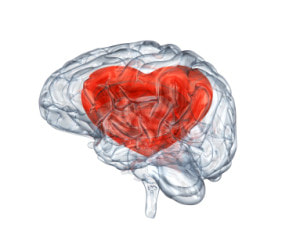|
By Aditya Nair
Edited by Bryce Harlan Now that we’ve gone over some of the reasons why the development of love may have been an evolutionary advantage, let’s move on to the nitty-gritty aspects of love. What do we know about what actually happens in the brain when we fall in love? We turn to the preeminent artistic savant of our generation, Ke$ha, who applies her musical prowess to describe sexual attraction in what can only be called a veritable tour de force: What you got, boy, is hard to find I think about it all the time I’m all strung out, my heart is fried I just can’t get you off my mind Because your love, your love, your love is my drug It turns out that Ke$ha was kind of right. Attraction actually strongly involves the reward system of the brain: the same brain system that is manipulated by cocaine and heroin. The neurotransmitter that is responsible for modulating this pathway is dopamine. This may go some way towards explaining why, when we’re first falling in love with someone, we feel like we can’t get enough of the other person’s presence. We feel compelled to spend every waking moment with them, and feel depressed and unfulfilled when we cannot be around them. Interestingly, the hormones that modulate this reward system in the context of love are different for males and females. For females, the production of the hormone oxytocin is increased during birthing and nursing, and has been associated in some monogamous species with the formation of long term mating behavior. For males, the presence of the hormone vasopressin compels the animal to demonstrate more behaviors associated with paternal behavior. The fact that different hormones are required for stimulating similar regions of the brain for males and females demonstrates that males and females have different roles and different goals in sexual activity and behavior. It may also provide evidence for the theories presented in the previous post about the role of different sexes in love. Now that we know which neurotransmitters are responsible for the emotions that we call love, we can explore the implications of such a system. Just like many other neurotransmitters and brain systems, genetic factors can influence how oxytocin and vasopressin are used by neurons. Each neuron expresses a number of receptors for particular neurotransmitters. Different forms of certain genes can influence how many receptors are expressed on each of neuron. This could mean that a person could feel more, less, or different emotions based solely on what genetic factors they’ve inherited. It could even mean that different people have upper limits on how much they can love someone (despite what the songs say). Indeed several studies have already associated different forms of the gene with decreased marital satisfaction. It could be the case that no matter how hard you try, how much time you spend with your significant other, and how much resources you invest in your significant, it’s physically impossible for the other person to love you any more than they do now, purely due to an unlucky set of genes. So just remember, next time you feel the butterflies start to flutter in your stomach, the next time you start losing yourself in someone else’s eyes, the next time you feel the warm feeling of holding a loved one close to your chest: Your feelings are a fleeting artifact of chaotic biochemistry carelessly evolved over millions of years “designed” to trick your brain into thinking it feels as good as if it were on cocaine. It could be that no matter how hard you try, the upper bound of your love is determined by a genetic lottery, and you are a slave to these inescapable biological processes that are hard-coded into your system.
0 Comments
Leave a Reply. |
Categories
All
Archives
April 2024
|

